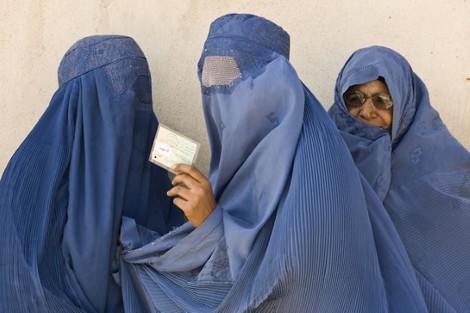Your podcast discovery platform
Curious minds select the most fascinating podcasts from around the world. Discover hand-piqd audio recommendations on your favorite topics.

piqer for: Technology and society Global finds Globalization and politics
Emran Feroz is an Afghan-Austrian journalist currently based in Stuttgart, Germany. He is regularly writing from Afghanistan, often focusing on the Middle East, Central Asia, drone warfare, refugee policies and human rights. Emran is writing in both German and English. His work has already appeared in international media outlets such as Al Jazeera, The Intercept, Alternet, The Atlantic or the New York Times and in various German and Austrian news papers and magazines.
A Toxic Debate: "Who Is An Afghan?"
For centuries, many different peoples lived in Afghanistan. Today, the ethnic landscape is dominated by Pashtuns, Tajiks, Uzbeks, Hazara and others.
Until today, all these people do not have real ID cards. It is common to use your birth certificate ("tazkira"), a DIN A4 sheet, as your ID. In some cases, Afghans do not even possess that.
To change this and to bring the citizens into the 21st century, the Afghan government is working on a multi-million dollar plan to issue new electronic identity cards. They would simplify bureaucracy and also prevent fraud in upcoming elections.
However, a toxic debate emerged.
Once, all of Afghanistan's citizens called themselves "Afghan". But in the context of the ID card debate, parts of some ethnic groups reject the term, saying that "Afghan" has been used in past (especially by British colonialists) to solely decribe the Pashtun people. For that reason, they do not want to have the word on their ID cards.
Pashtuns are considered as the founders of modern Afghanistan. Most of the country's rulers have been Pashtun men. Over the last years, ethnic debates emerged and gained prominency. Members of other ethnic groups complain that they feel isolated.
This has increased since the government of President Ashraf Ghani, also a Pashtun, came into power in 2014. Since then, tensions between him and warlords and political leaders from other ethnic groups have increased.
However, times have not always been like that. Many of my very own family members who are living in the American or European diaspora for decades do not even know that today's Afghan people differentiate themselves so much.
When they lived in Afghanistan in the 1960s or 1970s, it was normal to describe all citizens of Afghanistan, despite their religion or ethnicity, simply as Afghans.
